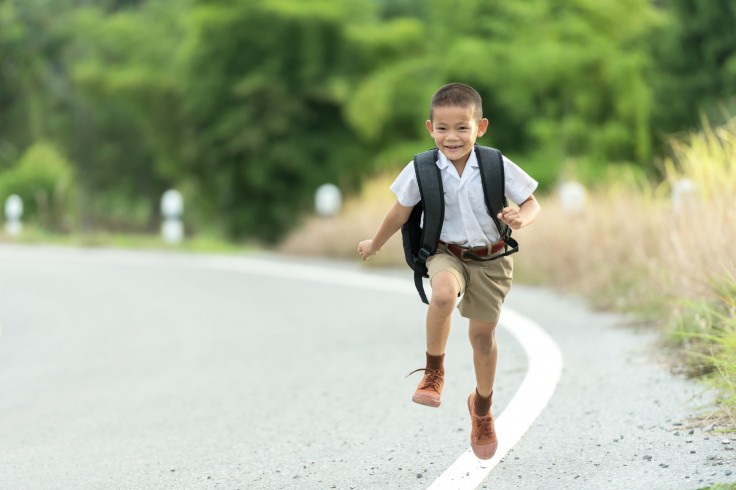
Various things have changed in schools for the sake of the children. Teaching and learning setups have changed due to the pandemic. Still, when the institutions, including schools, made specific changes in teaching and learning, one thing remained unchanged: the excessive weight of school bags of young students.
Kuensel Online says the average students carry their bags from home to school "six days a week, nine months a year, for thirteen years of their developmental period."
Young students carrying school bags that appear unnecessarily heavy and often more prominent in size than their backs are a common sight. However, parents, policymakers, and schools need to understand the short-and-long-term impacts of heavy bags on the back, especially on kids.
Unfortunately, children who carry heavy bags are more at risk for backaches from moving around the weight of personal items, school supplies, and books. Thus, the American Academy of Pediatrics (AAP) suggest that juveniles carry no more than 10- to 20 percent of their body weight in their bags.
What are the adverse impacts of heavy bags?
Youngsters lugging around the excessive weight of school bags frequently develop a forward head posture, with the body hinging forwards at the hips to balance out and compensate for the heavy weight on their backs which primarily causes unnatural posture alignment.
The commonly discussed effects of heavy bags are:
- Back pain
- Muscle strain
- Fatigue
- Poor body posture
- Rounding off the shoulder
- Shorter attention spans
- Distortion of the spine's natural curves
- Causalities of cervical and lumbar pain
Moreover, the growth points in the bones from which bones develop and cultivate will also be damaged by carrying heavy bags, which can cause abnormal growth.
Mayo Clinic says kids attempting to carry big stuff can strain young muscles, including the tendons and areas of cartilage that have not yet turned into bones.
Can the child's height get affected?
Truthfully, a child could have been taller if it weren't for that schoolbag he carried every day. This only means that carrying heavy bags affects one's growth.
Leon Loke, a mom, said that her daughter, who's currently in year three, bears more than 5kg daily but only weighs 19kg. She worries that her bag is already a heavy load which only means that carrying such is bad for her child's health, including her growth.
Furthermore, even if your child's spine remains straight through years of carrying a bag, the heaviness on their back slowly compresses their spine, affecting how tall a child grows and how tall he will stay.
To avoid having issues with growth and health concerns, Kids Health suggests picking the right backpack, as this will prevent a child from having any back injuries. Also, try to avoid bringing heavy stuff like books and personal property as much as possible. You can place unique things in your locker and only get important books with your bag. That way, you can carry light ones.
If carrying any inevitable heavyweight, bend at the knees and grab the bag with both hands, particularly when lifting the load to the shoulders.
Related Article : Heavy Backpacks May Lead to Back Pain in Kids, Experts Warn Parents